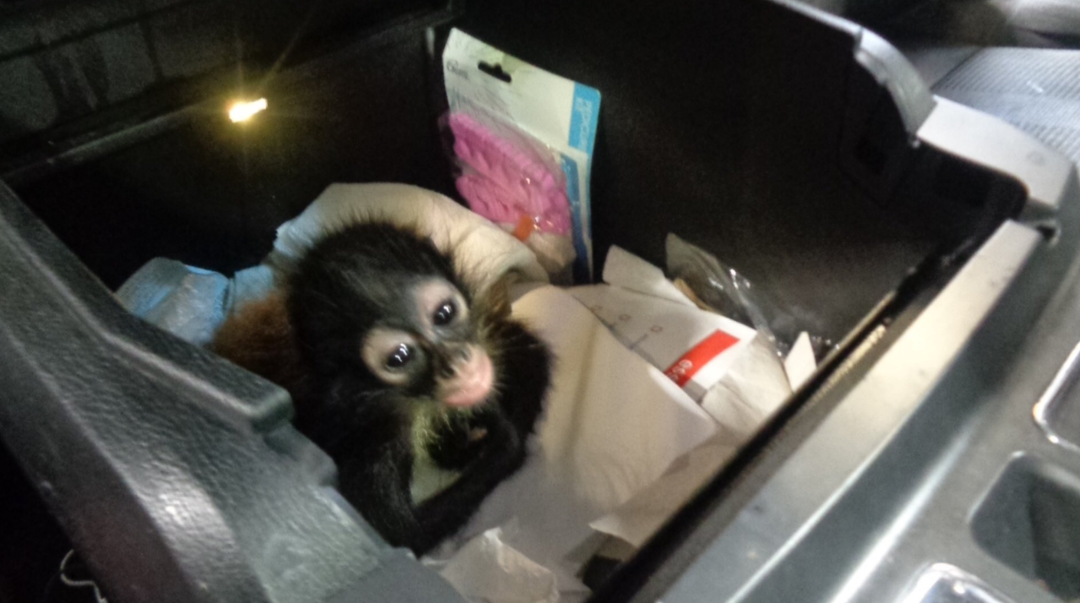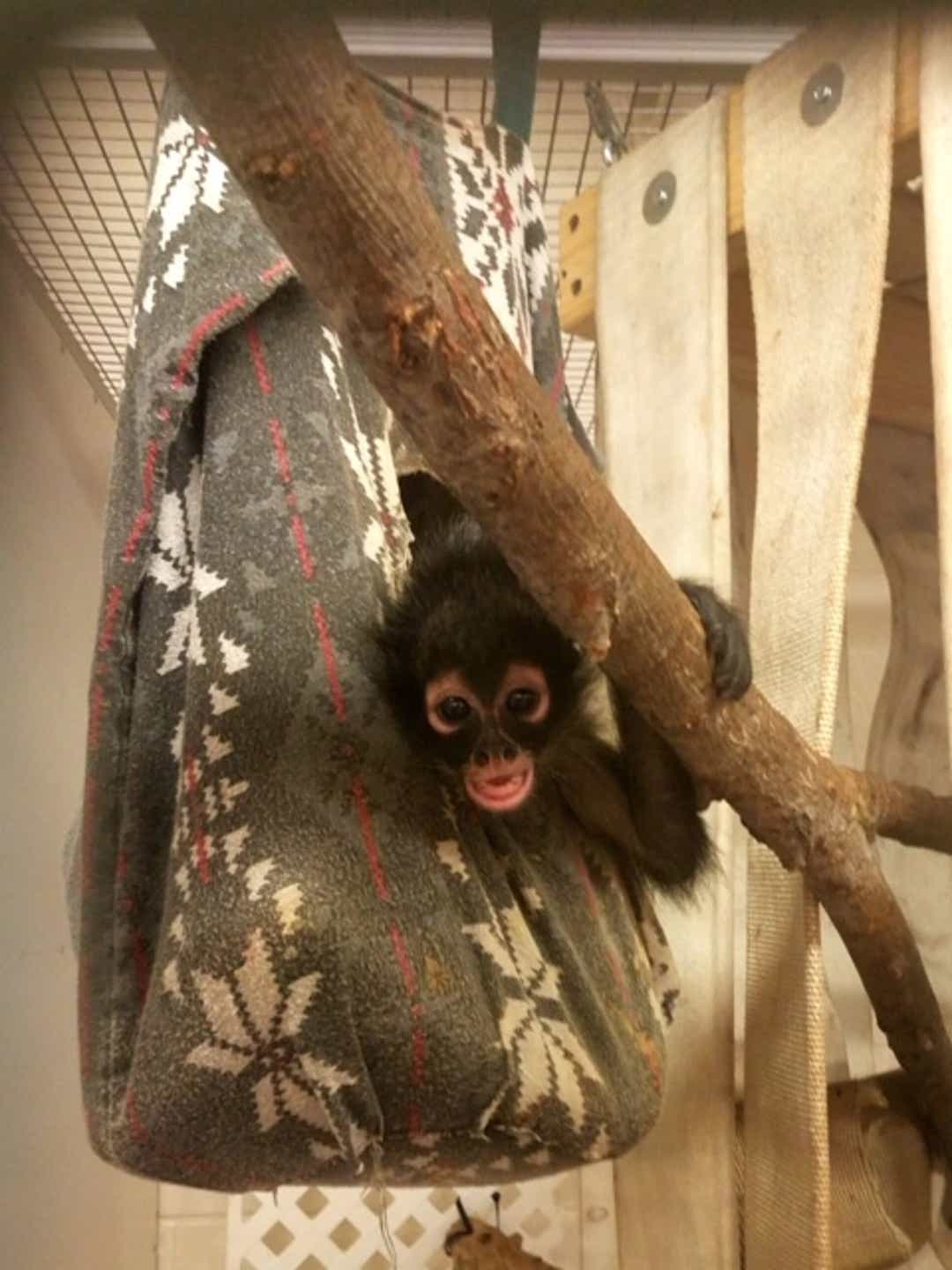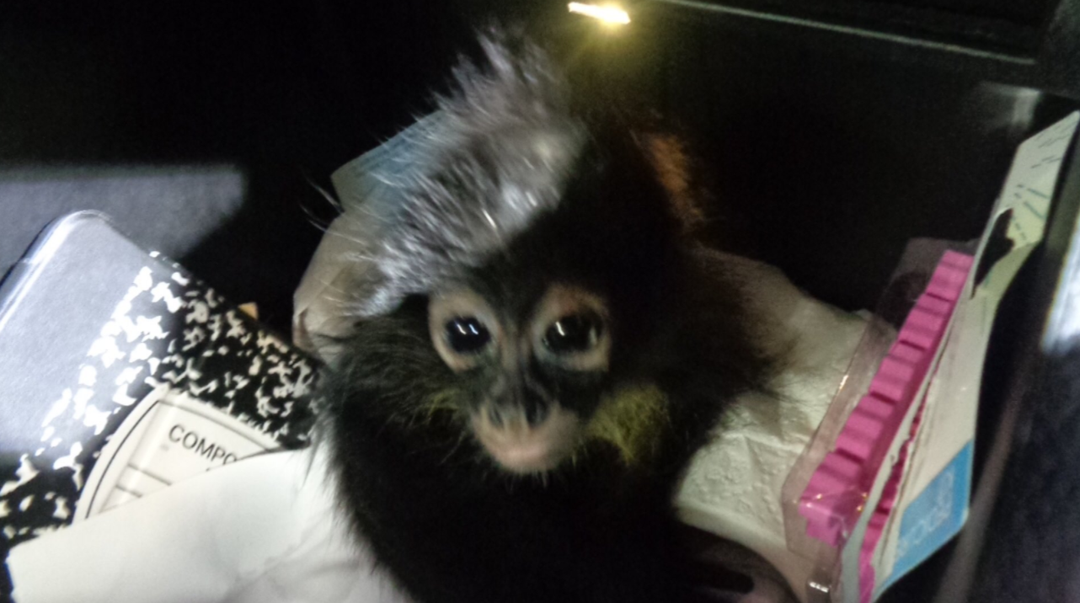Smuggled spider monkey to fly from Texas to his new home at Brevard Zoo
Rick Neale Florida Today
Published 8:44 PM EDT Sep 15, 2020

Stuffed inside the center console of a Ford F-150 truck, a baby spider monkey was rescued from a suspected smuggler at the United States-Mexican border in Hidalgo, Texas.
Now, this tiny primate is scheduled to travel from Dallas to Melbourne to bond with a new foster mother, joining the Brevard Zoo's charismatic troop of spider monkeys in Viera.
"He’s most likely a victim of the exotic pet trade. That's always a really tough situation. He's not with the family that he should have grown up with," said Darby Proctor, a Florida Institute of Technology assistant professor of psychology who researches spider monkeys at the zoo.

"One of our females, Shelley, has a dependent infant right now. And so our plan is to try to get Shelley to bond with this infant — and essentially adopt him," Proctor said.
"We think that’s possible. There have been a couple reported cases in literature of spider monkeys adopting other infants. And she has always been a really good mom, really gentle with the infants," she said.
"Because she's the alpha female, if she has his back, then we don't think any of the other monkeys would be aggressive toward him."
More: Brevard Zoo seeks $1 million in donations as COVID-19 triggers attendance plunge
More: Sea turtle named for NASA-SpaceX astronauts returns to ocean in Satellite Beach
Thursday morning, two FIT Aviation pilots will take off from Orlando Melbourne International Airport with Dave Quavillon, zoo curator of animals, to pick up the spider monkey from Dallas Zoo. That's where the small creature is quarantined.
The group will likely return Friday afternoon, barring weather delays triggered by Hurricane Sally.
On June 23, U.S. Customs and Border Protection officers discovered the spider monkey hidden inside the pickup. The abandoned animal was turned over to the U.S. Fish and Wildlife Service. Agents said a 23-year-old man from Pharr, Texas, had attempted to smuggle the monkey into the United States.
“Finding this monkey is certainly unusual, but not a first for our officers at Hidalgo,” said Port Director Carlos Rodriguez of the Port of Hidalgo/Pharr/Anzalduas, in a news release after the spider monkey rescue.
“Our officers normally discover prohibited agriculture products, merchandise, currency, weapons and narcotics, but on occasion they encounter people attempting to smuggle exotic animals as well,” Rodriguez said.
Spider monkeys inhabit tropical rain forests in Central and South America. On average, they reach 13.25 pounds, 2 feet long and 3 to 5 feet in height. One of the most prominent features on the spider monkey's body is its long tail, according to National Geographic's website.
“These New World primates are social and gather in groups of up to two- or three-dozen animals. At night, these groups split up into smaller sleeping parties of a half dozen or fewer. Foraging also occurs in smaller groups, and is usually most intense early in the day,” the website states.
“Spider monkeys find food in the treetops and feast on nuts, fruits, leaves, bird eggs, and spiders. They can be noisy animals and often communicate with many calls, screeches, barks, and other sounds,” the website states.
Rainforest habitat destruction threatens the long-term survival of spider monkeys.
Proctor developed a Florida Tech spider monkey cognitive testing area as part of the zoo’s $4.4 million Rainforest Revealed expansion, which opened in November.
She said the incoming baby is about 7 months old, while Shelley is 27 years old — and the baby cannot be returned to the wild.

Tuesday morning, two Florida Tech students recorded behavioral observations of Shelley interacting with her current infant. Proctor said these notes will be compared with Shelley's actions with the rescued infant — along with the rest of the troop — to document their relationship-building process.
"One of the reasons that these monkeys are so special is, they live in a very complex social structure called a fission-fusion structure," Proctor said.
"It's actually what we humans do. We split up for days or hours at a time before reuniting with our friends. Or if we're upset with someone, we might avoid them for a couple of weeks. And that’s exactly what these monkeys do in the wild," she said.
Brevard Zoo Executive Director Keith Winsten said the global COVID-19 pandemic has created an "open season" for illegal wildlife trafficking.
"The wildlife trafficking trade is the fourth most lucrative illegal trade — right after drugs, arms and people," Winsten said.
"So this seems to be a very small-scale thing, that a guy smuggles a spider monkey in from Mexico over the border. But the bottom line is, it's a symbol of a bigger issue," he said.
Rick Neale is the South Brevard Watchdog Reporter at FLORIDA TODAY. Contact Neale at 321-242-3638 or rneale@floridatoday.com. Twitter: @RickNeale1. To subscribe: https://cm.floridatoday.com/specialoffer/
tinyurlis.gdu.nuclck.ruulvis.netshrtco.de
